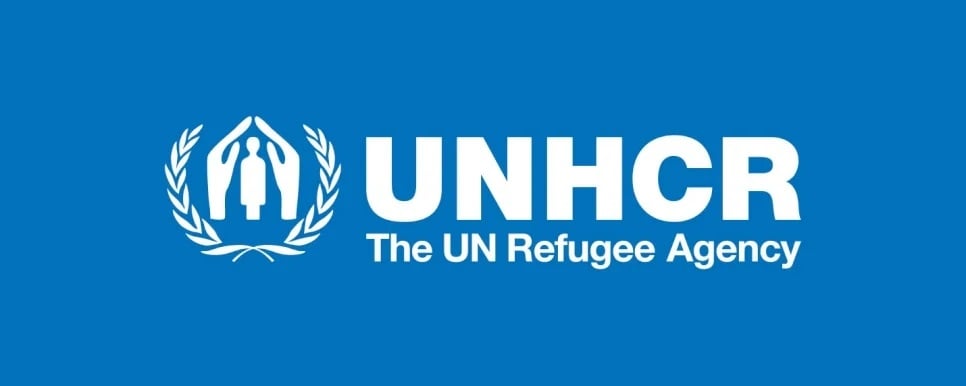Feature: Sri Lanka makes citizens out of stateless tea pickers
Feature: Sri Lanka makes citizens out of stateless tea pickers

COLOMBO, Sri Lanka (UNHCR) - Appu Kullamma does not remember anything about her motherland in India. Her earliest memories are of the tea plantations in Sri Lanka, where she grew up.
"I can remember my father and others working in the tea estate," she says. "My mother picked tea leaves and my father worked as a labourer there. I have never been to school. I started picking tea leaves the moment I began to understand things."
Kullamma's Indian parents took her to Sri Lanka when she was a baby. "They did not tell me anything beyond that. Relations in India sent letters to my mother, but I have not seen them. I do not even know which part of India I was born."
Now 88, Kullamma is Sri Lankan in every way, but until recently, this was not reflected on paper. Like tens of thousands of people in the country, Kullamma was stateless. She had no nationality, no right to vote, to work officially, to open a bank account or to obtain state land. And she had no possibility to apply for documents like a passport or birth certificate.
Most of the stateless people in Sri Lanka are descendants of people who had been brought from India by British colonisers between 1820 and 1840 to work on coffee and tea plantations in Sri Lanka. Known as "up-country Tamils" or "hill Tamils", the majority still lives on tea estates in southern and central Sri Lanka. A minority was displaced in the north and east by inter-ethnic fighting in 1983.
Over the years, several Indo-Ceylon agreements have granted some of these people either Indian or Sri Lankan citizenship, but as of October 2003, there were still an estimated 300,000 stateless people of Indian origin in Sri Lanka.
Anamuththu Pappu, 58, recalls how under an agreement in the early '70s, "those who had Indian passports were forcibly deported to India. We were avoiding them and hiding. Sinhala people helped us to hide."
She adds, "Due to the lack of citizenship, we had difficulties in getting things done through the government. It is a great injustice. I did not like to go to India. India is not ours. We belong to Sri Lanka."
This longstanding problem is currently being resolved, unlike many other situations of mass statelessness elsewhere in the world. In October 2003, the Sri Lankan Parliament passed the "Grant of Citizenship to Persons of Indian Origin Act". It means that all stateless persons of Indian origin who had lived in Sri Lanka since October 30, 1964, and their descendants, will be granted Sri Lankan citizenship if they wish.
The UN refugee agency worked with Sri Lanka's immigration authorities, Ministry of the Interior and the Ceylon Workers' Congress (CWC) to design a campaign to ensure that stateless persons could get their citizenship in a speedy, fair and transparent manner.
They raised public awareness through the media and created advertisements to inform people about the new law. Other information included a listing of the 50 mobile clinics where people could ask questions and fill in the necessary forms that they would need to apply for passports, identity cards and other documents.
UNHCR and CWC also trained volunteers, who were briefed on statelessness issues, related laws since 1948, eligibility criteria under the new law and how best to guide people seeking advice. Every mobile clinic had volunteers who spoke Tamil, Sinhalese and English.
The actual campaign against statelessness in Sri Lanka started in tea plantations in the country's south and central areas in early December 2003. In some cases, the volunteers had to travel to the tea estates to register stateless people whose managers would not give them time off. Other managers helped arrange buses to take their workers to the centres. Close to 200,000 stateless people received citizenship over 10 days.
In September this year, UNHCR and the Ministry of Relief, Rehabilitation and Reconciliation started the same campaign in the north and east of Sri Lanka, where an estimated 10,000 stateless people have been displaced by civil war. The registration for citizenship is still ongoing in these areas.
The UN refugee agency expects that most stateless people of Indian origin who wish to register as citizens in Sri Lanka will do so by the end of this year. After that, registration facilities will still be available in government offices and UNHCR will continue efforts to ensure that the new citizens are granted voting rights.

Thousands of others with the same status who would have qualified for citizenship had fled the fighting in Sri Lanka and are now living in refugee camps in South India. UNHCR will continue to support the Sri Lankan government in ensuring that they are granted citizenship in one of the two countries.
"We are extremely pleased that Sri Lanka has managed to resolve the nightmare situation into which so many of its inhabitants were locked," said Philippe Leclerc, UNHCR's Senior Legal Officer for Statelessness. "It has taken a really concerted effort by the government and by committed individuals and groups such as the Ceylon Workers' Congress to bring this about."
He added, "Hopefully other states with big groups of stateless people will look at the example provided by Sri Lanka, and also by Ukraine, which has given back a national identity - and all that goes with it - to several hundred thousand Crimean Tartars. These two states have shown what is possible, providing the will is there."









